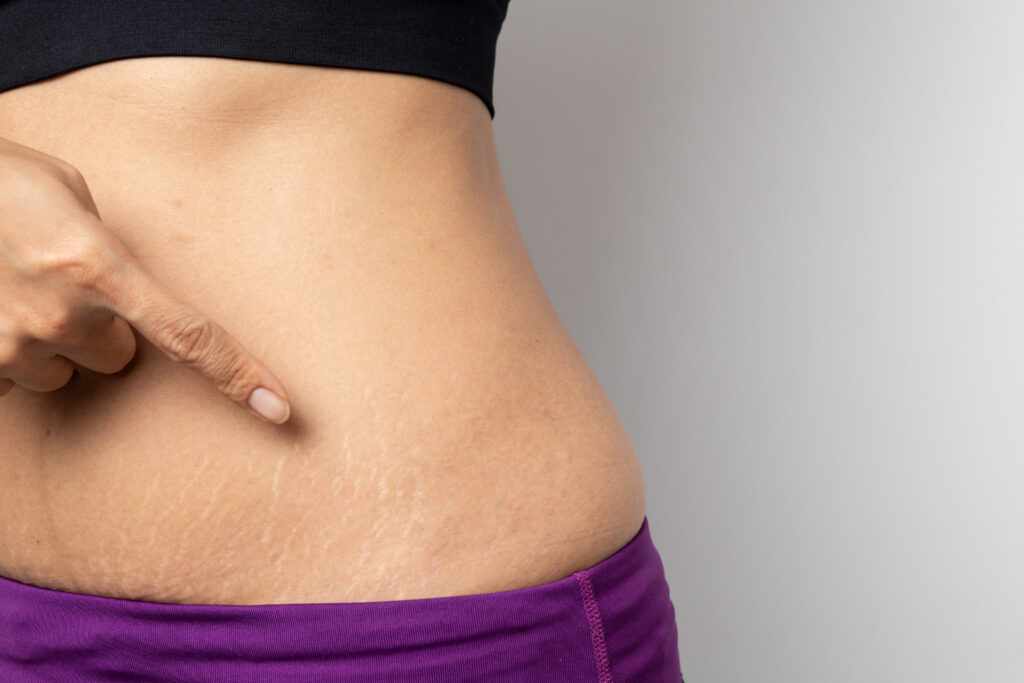Can laser treatment remove stretch marks?
For several people, laser treatment may be the final hope for removing stretch marks. Stretch marks are an unavoidable and unpleasant side effect of conditions like pregnancy. They can also affect bodybuilders and anyone who has gained or lost substantial weight within a short time. For other people, they are unfortunate enough to develop stretch marks during the growth period of puberty.
It is true that having a constant weight and taking good care of one’s skin may help avoid this skin condition. But the sad truth is that hormonal changes and heredity combine to play a significant role in stretch marks forming.
Many creams, oils, and lotions claim to improve or even prevent stretch marks. If they contain Retin-A, a form of vitamin A that helps the skin renew itself, they may have a positive effect. This compound is marginally useful at reducing the noticeable depth of stretch marks. Asides from this, most medical experts agree that the claims made by most cosmetics are mostly hype. With the dawn of lasers for cosmetic purposes, though, hope for treating this problem appears to have been renewed.
Can laser treatment remove stretch marks?
The answer is no. Since stretch marks represent a permanent change in the deeper layer of skin beneath the surface layer known as the epidermis, no amount of resurfacing can erase them.
However, studies have shown that laser treatments can reduce the depth of stretch marks in some people, with an improvement rate between 20% and 60%. The improvement works largely by the laser stimulating the production of collagen and elastin in the dermal (deeper) skin layer, where stretch marks form.
How can laser treatment help your skin?
Lasers are most useful on immature stretch marks. Immature stretch marks are darker in color. Many healthcare providers say they are nearly useless on more mature or lighter stretch marks. Likewise, laser treatment for darker skin types is generally considered inadvisable, mostly because of the risk of hyperpigmentation changes in the skin.
Summarily, there is no “cure” for stretch marks. Even worse, preventing it is not completely in your power, especially during severe hormonal fluctuations, such as pregnancy and puberty. For example, if your mother has stretch marks, there’s a fair chance that you will have them, too.
Only you can decide whether a 20% to 60% improvement in the appearance of stretch marks is worth making visits to the plastic surgeon’s office.

